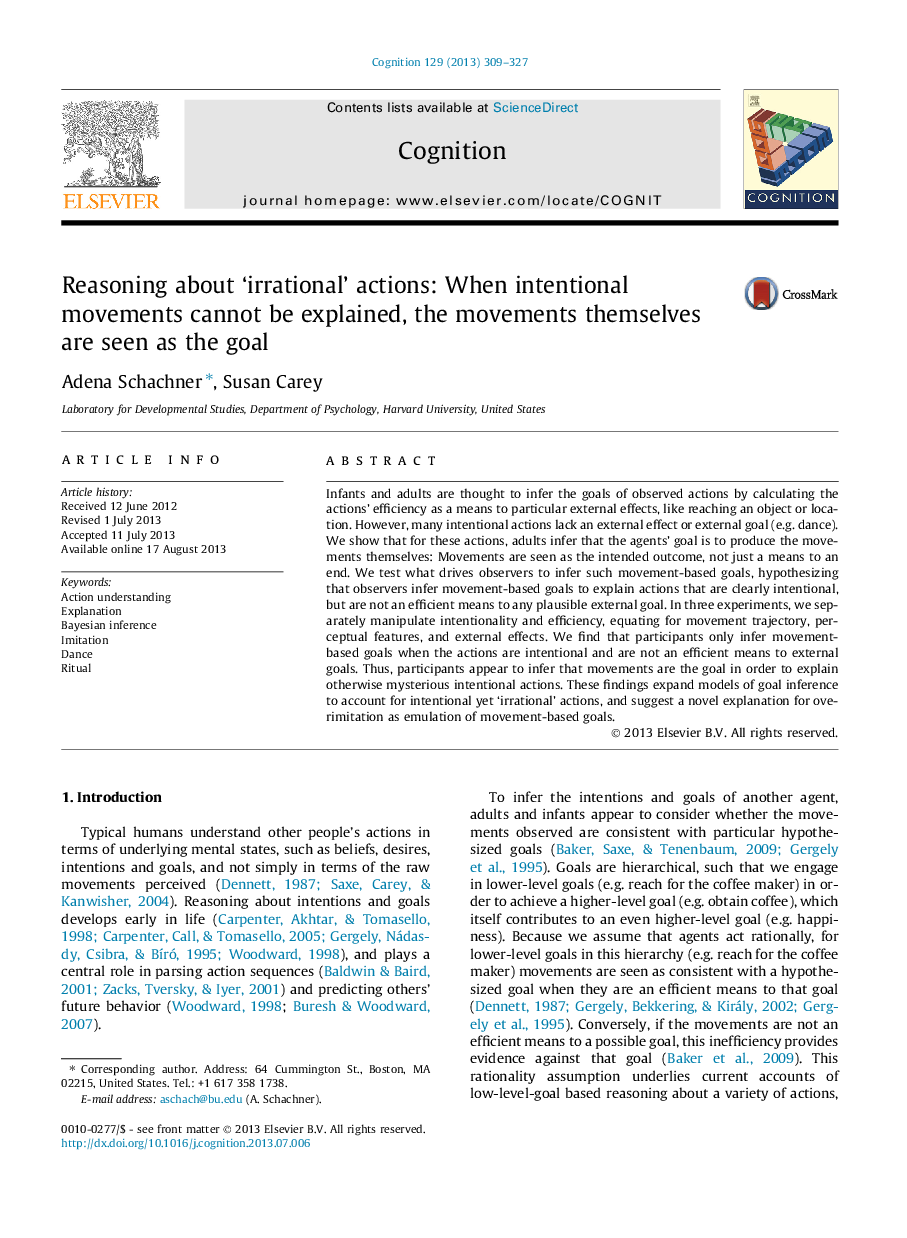| کد مقاله | کد نشریه | سال انتشار | مقاله انگلیسی | نسخه تمام متن |
|---|---|---|---|---|
| 926388 | 921858 | 2013 | 19 صفحه PDF | دانلود رایگان |

• We infer the goals of actions by evaluating their efficiency.
• However, many actions are not efficient means to any object or location, e.g. dance.
• For such actions adults infer that producing the movements is the goal.
• Observers draw this conclusion to explain otherwise mysterious intentional actions.
• This suggests that overimitation may actually be emulation of movement-based goals.
Infants and adults are thought to infer the goals of observed actions by calculating the actions’ efficiency as a means to particular external effects, like reaching an object or location. However, many intentional actions lack an external effect or external goal (e.g. dance). We show that for these actions, adults infer that the agents’ goal is to produce the movements themselves: Movements are seen as the intended outcome, not just a means to an end. We test what drives observers to infer such movement-based goals, hypothesizing that observers infer movement-based goals to explain actions that are clearly intentional, but are not an efficient means to any plausible external goal. In three experiments, we separately manipulate intentionality and efficiency, equating for movement trajectory, perceptual features, and external effects. We find that participants only infer movement-based goals when the actions are intentional and are not an efficient means to external goals. Thus, participants appear to infer that movements are the goal in order to explain otherwise mysterious intentional actions. These findings expand models of goal inference to account for intentional yet ‘irrational’ actions, and suggest a novel explanation for overimitation as emulation of movement-based goals.
Journal: Cognition - Volume 129, Issue 2, November 2013, Pages 309–327